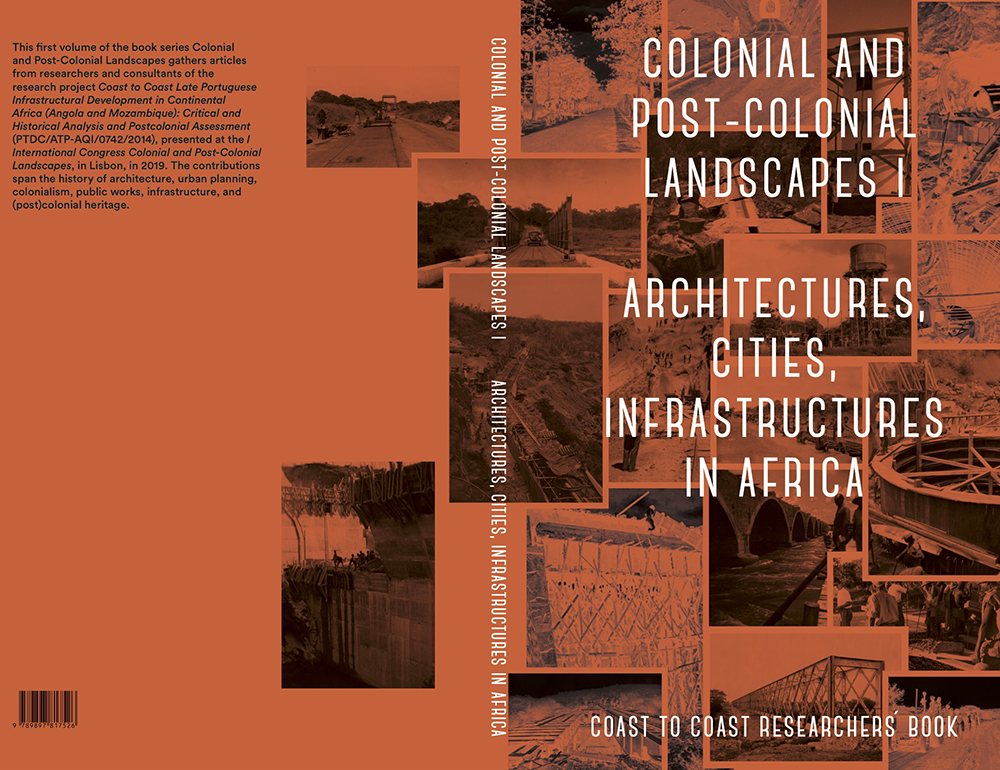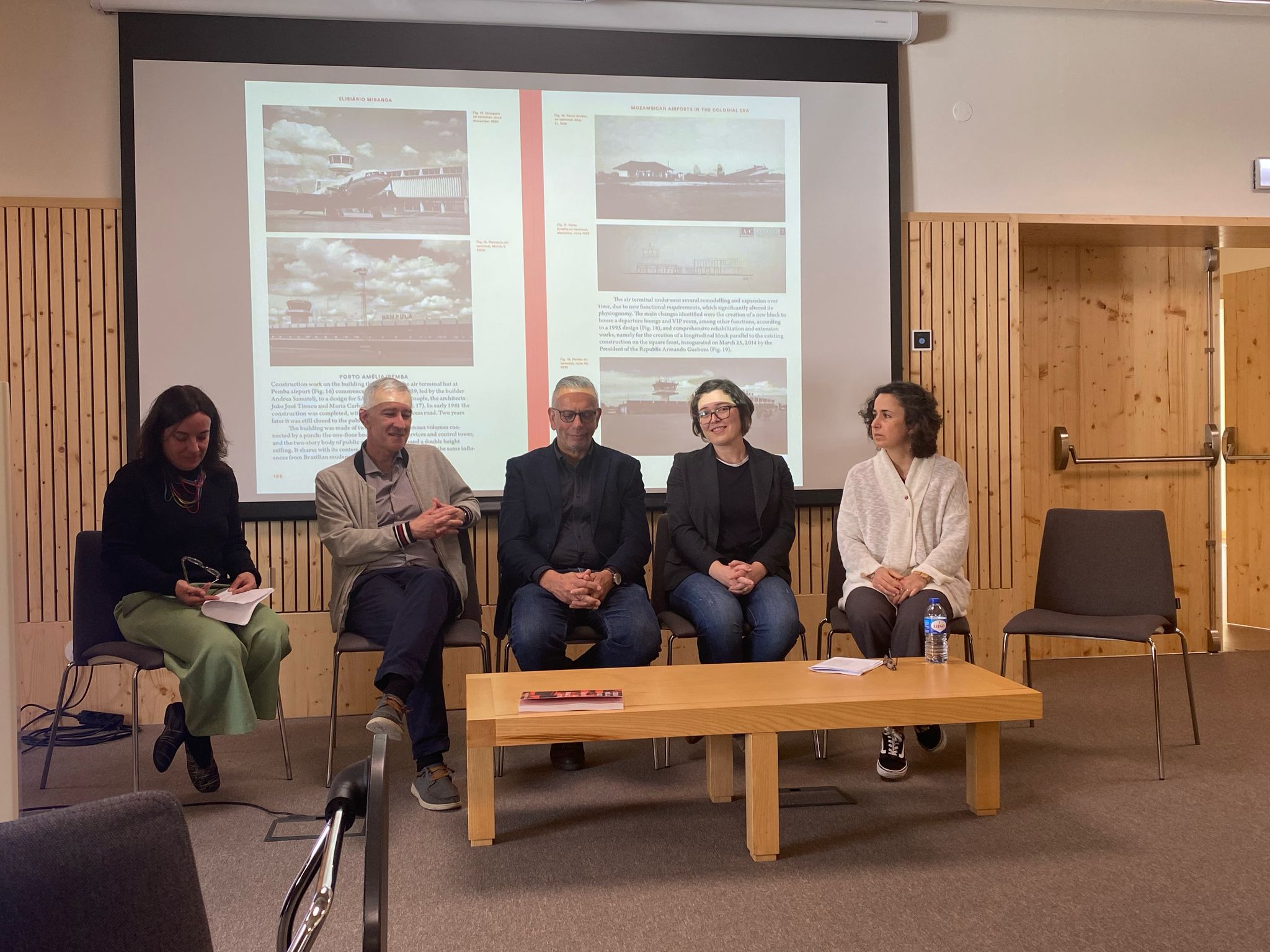Book Launch
Colonial and Post-Colonial Landscapes I – Architecture, Cities, Infrastructures in Africa. Coast to Coast Researchers’ book
Book: Ana Vaz Milheiro (coord.)(2025). Colonial and Post-Colonial Landscapes I – Architecture, Cities, Infrastructures in Africa. Coast to Coast Researchers’ book. Lisbon: Dinâmia’CET-Iscte
Date: 1 April 2025
Location: Lisbon, Portugal


Summary
This first volume of the book series Colonial and Post-Colonial Landscapes presents the work of a group of researchers who, since 2010, have organised themselves into teams, crossing different research projects funded by the Portuguese Foundation for Science and Technology (FCT), starting with The Colonial Urbanisation Offices: Architectural Culture and Practice (PTDC/ AUR-AQI/104964/2008). The book brings together the main themes and arguments presented at the I International Congress Colonial and Post-Colonial Landscapes: Architecture, Cities, Infrastructures, as a result of the project ‘Coast to Coast’ – Late Portuguese Infrastructural Development in Continental Africa (Angola and Mozambique): Critical and Historical Analysis and Postcolonial Assessment (PTDC/ATP- AQI/0742/2014). The congress was held in Lisbon, at the Calouste Gulbenkian Foundation, from the 16th to 18th of January 2019, and was attended by 166 scholars. Its parallel programme included the exhibition Colonizing Africa – Reports on Colonial Public Works in Angola and Mozambique (1875-1975) at the Overseas Historical Archive [Arquivo Histórico Ultramarino], also in Lisbon. As a follow-up, a cycle of six seminars and a workshop for children were based on the exhibition theme and held at the Archive’s facilities, until April 2019.
The Coast to Coast project aimed to survey, catalogue and contextualize the infrastructural process of the former Portuguese colonial territory in continental Africa (Angola and Mozambique) during the last century of Portuguese colonisation (1875-1975). The research questioned the influence of colonial strategies on current architectural and urban praxis in both these countries. It started from the analysis of the infrastructure process by mapping three specific typologies of colonial public works, approached from the perspective of archival and documental analysis, cartography, and histo- riographical description to the phase of identification and critical analysis of the state of these infrastructures (reuse, consolidation or abandonment) after Angolan and Mozambican independence in 1975. The central argument was based on the hypothesis that colonial territorial infrastructure processes left resilient marks on the post-colonial landscape, whose impact should be analysed to support future actions. Three programmatic typologies were chosen which were decisive in the territorial occupation and are still visible today: (i) transport networks (roads, ports, railways, and airports); (ii) hydro-electric power production (dams and facili- ties); (iii) settlements associated with the exploitation of natural resources (mining and agriculture). The three programmes were interconnected, reproducing the centralising model of Portuguese colonial exploitation. The team gathered Portuguese, Angolan and Mozambican researchers, architects, historians, and archivists. The Calouste Gulbenkian Foundation, Arquivo Histórico Ultramarino, Eduardo Mondlane University (Mozambique) and Universidade Técnica de Angola were partner institutions.
Click here for the original publication.

